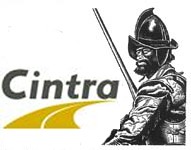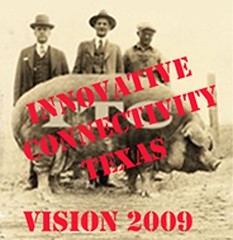Leighton starts lawsuit against ConnectEast

9/9/09
MARTIN COLLINS: John Durie
The Australian
Copyright 2009
EVER since global credit markets shut 12 months ago, the infrastructure debate has centred on how to attract funding, and now Leighton has provided one more cause for concern.Its contract dispute with ConnectEast highlights the fact that
while developers and operators want the government to take on more risk in the aftermath of the GFC, the private sector operators are masters at minimising their own risks.Leighton isn't getting as much money as it thought it would because
the traffic estimates were too high.Ask the company whether it would have handed the money back if the estimates were too low, and the response is laughter: "We had a contractual right."It would all be a great game if the consequences were not serious, but at risk is the level of infrastructure development and who shares the risks and rewards.In the dispute, Leighton wants to add cream to its considerable booty from the project and in the process hurt minority shareholders by kicking $50 million from ConnectEast's market value.
You would think Leighton would want ConnectEast to have more, not less, money to pay it.
The dispute creates even more doubt over the aggressive traffic claims bidders use to win the multi-billion-dollar projects.Unfortunately the system now rewards bidders for being too aggressive.Behind the
facade of nation building, financiers and contractors use every bit of leverage to maximise their take at the risk of hurting the small shareholders who were mistakenly happy to back the project.
After watching this performance they have another reason to think again and -- just like last week's decision by Brisbane City Council to go it alone on the $1.8bn Northern Link Tunnel --
taxpayers will have to pick up the tab.To be fair to Leighton and its chief operating officer David Stewart, the ConnectEast dispute is a straight contractual fight -- which means there will be rights and wrongs on both sides -- but
it's the timing of this stoush and the regularity of Leighton's use of lawyers to top up its money jars that raises questions.Leighton handles virtually 100 per cent of the big road construction in Australia, with most big contracts a battle between its divisions rather than against another firm. The $2.5bn ConnectEast's East Link project was no different.
The ACCC was happy to wave through mergers among the big developers to leave Leighton in control.Leighton's John Holland boss Glenn Palin and Thiess's Neville Power were negotiating with ConnectEast's John Gardiner until last Friday when talks broke down.
As it happens, ConnectEast is in the middle of a $420m capital raising, with the institutional issue formally closing yesterday and raising $309m.
As part of the spoils for winning the project, Leighton picked up a $7.5m bonus on completion and 260 million shares in ConnectEast -- of which it still owns 113 million. It decided against participating in the capital raising and -- as was its right -- collected $2.3m for selling its rights.
That after all was the virtue of ConnectEast chair Tony Shepherd's offer structure, which gave every shareholder a right to participate and to collect some value if he or she decided against taking up the rights.
So Leighton pocketed the money, then dropped the bombshell with news of the litigation, which helped push ConnectEast below the rights price for the first time in over a week, with the stock closing yesterday down 5.4 per cent at 35c.Maybe Leighton didn't plan it that way, but it just so happens the litigation threat came at the point of maximum leverage over Shepherd and potentially maximum harm to his capital raising.
The claim itself is over traffic forecasts made by Hyder Consulting, which was hired by the bid team that included Leighton, Macquarie Group and ConnectEast.Hyder said by April the road would carry 258,000 cars a day, but so far it has been more like 159,000.
The difference mattered in several respects, but the important things to know are that Leighton has had a representative on the board the entire time, so knew all about traffic numbers and was happy to pay Hyder's costs.
One of the problems when governments sell tollroads is they encourage bidders to overestimate traffic numbers -- the more cars on the road, the lower the tolls that can be charged and the lower the costs.In this case, Leighton collected a $7.5m success fee, $2.5bn in constructions fees, plus equity in the project and, as late as yesterday, its $2.3m for forgoing its rights.
All of this because the traffic estimates were higher than reality, which meant Leighton would get a lower bonus for completing the road five months earlier.
The bonus was linked to traffic use and the time of completion with the risk, of course, that finishing late would have resulted in millions of dollars in penalties.
The big rewards are designed to reflect the risks taken, but the dispute throws into doubt the level of risks.The published claims of $400m in damages are fairyland stuff because the actual amount at risk is more like $75m, of which ConnectEast has already provided for $30m.When projects are delayed, Leighton sues the government and anyone else to blame them to recover funds, and when the numbers fall short of projections it attempts to recover its upside.Downside doesn't seem to be in the equation, which, of course, means risk is not large.
Brookes' float pitchONE of the problems with high-profile floats is they let insiders air their claims, as has happened already with some Myer staff complaining about being forced to work too many weekends, under pressure to sell more and in the process staff morale is at an all-time low.
The retailer rejects the claims and when Saint Bernard Brookes hits the podium on Friday, he will talk up cultural change in the company, helped by the fact that some 18 per cent of full-time staff are on short-term incentives and 400 are in the equity pool, which owns 7.5 per cent of the company.
Saint Bernard also invested in the $1.4bn buyout, but the size of his stake was not divulged yesterday.
Store managers are encouraged to run the business like its their own, with 10 key criteria for their bonuses including sales, costs, shrinkage (theft), profits, customer care, sale of house brand products, maximising sales per transaction, safety and selling warranties with electrical products.
Before TPG acquired the business, it was earning between $60-$100m a year and now, the 2009 year earnings before interest and tax will be more like $235m with earnings margins up from 2 per cent to 7 per cent.
Debt will be cut further from the float proceeds from $660m to around $450m.
With all that profit growth in the past, how much can be expected in the future?
There is no doubt TPG and Saint Bernard have fixed a broken company and in the process have also grown profits dramatically.
So if they are selling a business on historical EBIT multiples of 13 times, even with over $400m in capital expenditure, ask yourself how much in costs have been removed which will have to be replaced?
The good news is TPG's global track record for retail floats is 27 per cent-plus outperformance against the relevant indexes for the likes of Petco, J Crew, Burger King and Debenhams.
This time, the pitch will also start with Myer One club members being certain targets for the float team of Macquarie, Goldman Sachs and Credit Suisse.© 2009 The Australian:
www.theaustralian.news.comTo search TTC News Archives click HERETo view the Trans-Texas Corridor Blog click HERE














